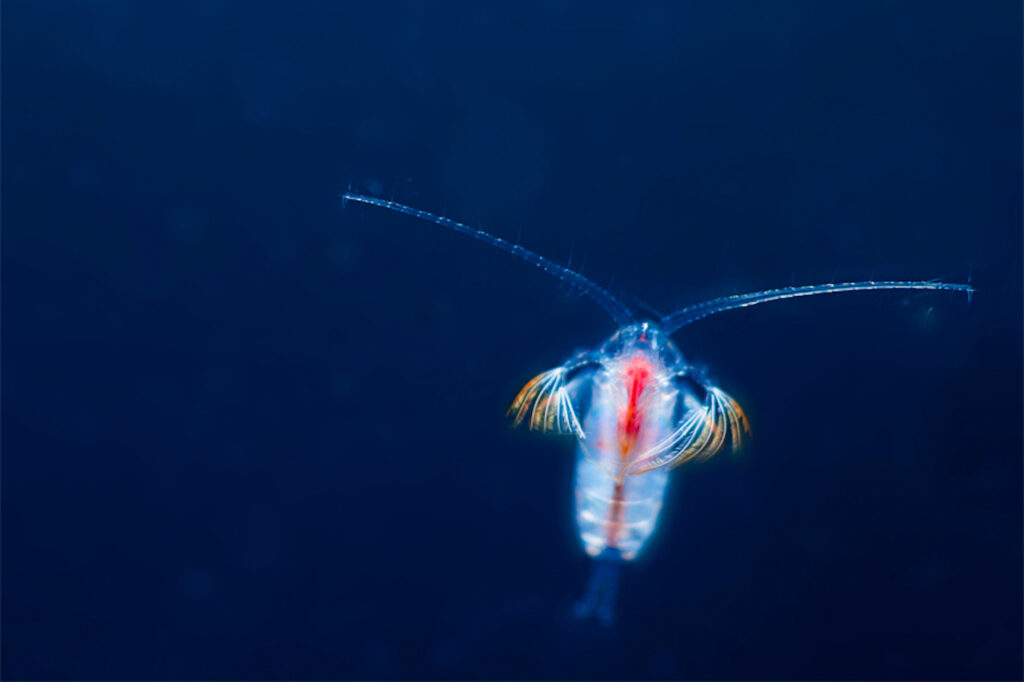Florida State University researchers have analyzed the carbon exported from surface waters of the California Current Ecosystem — the first-ever study to quantify the total carbon sequestration for a region of the ocean.
The study, published in Nature Communications, serves as a framework for assessing how the processes that sequester carbon might change in a warmer world, while also creating a blueprint for similar budgets in other ocean regions.

Plankton: Euchirella and other copepods (microscopic crustaceans) are important producers of sinking particles. This example was collected on a 2017 cruise on the R/V Revelle. (Courtesy of Michael Stukel)
Understanding the carbon cycle — the sources and reservoirs of carbon — is an important focus of Earth sciences. Many studies have examined the carbon sequestered by sinking particles formed from algal production. Fewer studies have focused on plankton particles that move to the deep ocean through other methods or the marine life that migrates vertically through layers of the ocean.
“Our study is the first to put all of these different processes together to fully investigate the processes driving the biological carbon pump for a major ocean region,” said lead author Michael Stukel, an associate professor in FSU’s Department of Earth, Ocean and Atmospheric Science.
Stukel and his team found that a host of processes contribute to the movement of organic carbon through the marine ecosystem. Their analysis confirmed that sinking particles are the dominant process transporting carbon, but they also found that particles transported by ocean currents and zooplankton that migrate down into the deep ocean every day contribute 30 to 40 percent of carbon sequestered in the deep ocean.
The data comes from 15 years of research cruises by the California Current Ecosystem Long-Term Ecological Research program in an area that spans from San Diego to Monterey Bay and extends about 300 miles offshore. Stukel and his team combined information collected during those trips with computer modeling.
The algae in the surface ocean perform about half the world’s photosynthesis, but they live for a week, so the carbon dioxide they take in only gets sequestered if the carbon created by plankton somehow moves into the deep ocean, a process known as the biological carbon pump.
That process transports five to twelve petagrams of carbon into the deep ocean every year. For perspective, humans emit about ten petagrams of carbon annually.
As climate change alters the Earth, it’s unclear how it might affect processes like the biological carbon pump.
“We don’t know if the biological carbon pump will take up more or less carbon dioxide in the future,” Stukel said. “The first step in answering that question is putting together a full budget for what’s happening now. We think our study is an important step in the process of fully understanding how the biological carbon pump works today and hence, how it will change in the future.”
This research was supported by the National Science Foundation.
Co-authors were John P. Irving, Christian K. Fender and Natalia Yingling, all from Florida State University; Thomas B. Kelly, an FSU doctoral graduate who is now a postdoctoral researcher at the University of Alaska Fairbanks; and Mark D. Ohman from the University of California San Diego.
